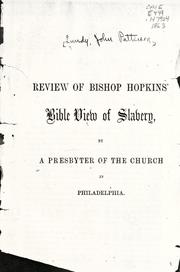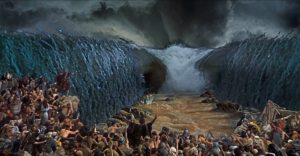In the narrative Running a Thousand Miles for Freedom; or, the Escape of William and Ellen Craft from Slavery, a variety of allusions are utilized to add to the narrative and emphasize the ways that slavery impacted society as a whole, as well as to grow the literary authority of the narrative. Biblical references are commonly used throughout Craft’s account of his wife and his escape from slavery. In this time period when civil violence was growing and racial issues were at the forefront of societal issues, it was common for Christians to both approve of and partake in keeping slaves. While nowadays it seems as though this would never be the case based on the ideals that present-day Christians are seemingly committed to, it was their opinions and thoughts that seemed to validate the practicing of slavery.
Craft acknowledges the acceptance of slavery by Christians by pointing out the opinions of various reverends from throughout the North. By quoting northern reverends, he is able to emphasize that the belief that slavery did not go against the Bible was not only common in the South, as would be expected, but was accepted throughout the country. Most notably, Craft points to views pertaining to the Fugitive Slave Act. Rev. Dr. Taylor from New Haven, Connecticut encouraged the church to follow the law and, therefore, return any fugitive slaves to the southern states. Rev. Bishop Hopkins of Vermont not only backs the Fugitive Slave Act, but goes so far as to say that since the Old Testament warrants slavery and the New Testament does not address it, slavery is thus permitted by the Bible (Craft, 96). He proposed that Christians were allowed to have slaves, as long as they treated them properly. Proper treatment, however, is not something that seemed to be addressed by these reverends. They simply trusted their fellow followers of Christ to treat the slaves respectfully, despite the fact that they were considered as nothing more than property.

https://archive.org/details/bibleviewofslave00dris
Craft never directly counters the statements made by the reverends – he doesn’t explicitly say that the Lord was against slavery, but rather shows the invalidity of this belief by comparing his own journey to the Israelite’s escape from Egypt. When speaking of his master searching for him upon their arrival in Philadelphia, Craft equates the master’s troubled feeling to that of the Israelites as they approached the Red Sea during their flee from Egypt (Craft, 75). While this comparison serves to show a parallel in stories of fleeing from slavery, it is also important because it allows Craft to show that the Lord does not condone slavery as many were preaching throughout the country. It was the Lord’s work that parted the Red Sea and ultimately enabled the Israelites to escape from Egypt. This reference clearly counters the assertion that the Bible permitted slavery, seeing as it was by the work of God that these people were able to be released from their bondage to slavery.
https://chasingthewind.net/tag/evil/
Craft’s allusions to the Bible, both through the views of men deemed “holy” and the events of the flee from Egypt, stress the contrast between what people were saying and believing, and what was actually true. He is able to portray that even though claims were made that the Old Testament doesn’t condemn slavery, it is obvious that the Lord was against those who were enslaving when the Red Sea flooded back on them. His use of Biblical references enables him to call out the Christians who were being tolerant of slavery and not fighting back before numerous lives were lost due to the cruel practices that were all too common.
http://docsouth.unc.edu/neh/craft/craft.html
